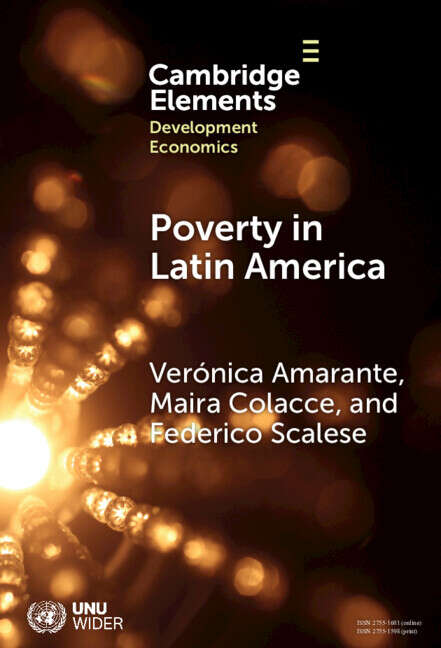
Poverty in Latin America: Feelings/Perceptions vs Material Conditions (Elements in Development Economics)
Business and economics
Synthetic audio, Automated braille
Summary
This Element derives subjective poverty lines for seven Latin American countries based on a Minimum Income Question included in household expenditure surveys. It compares poverty incidence under the subjective and objective approach, finding subjective poverty is larger than objective for… all countries. People identified as poor are generally poor by both measures or only subjective poor, although patterns of overlapping differ between countries. It explores the factors associated to considering oneself as poor - being subjectively poor- when the per capita household income is higher than the objective poverty line. Generally, unemployment and informality are associated with higher probability of subjective poverty. Other factors not directly involving income but reflecting high economic security also tend to reduce the probability of feeling poor. Finally, the welfare stigma effect does not seem to hold, at least in terms of subjective poverty. This title is also available as Open Access on Cambridge Core.